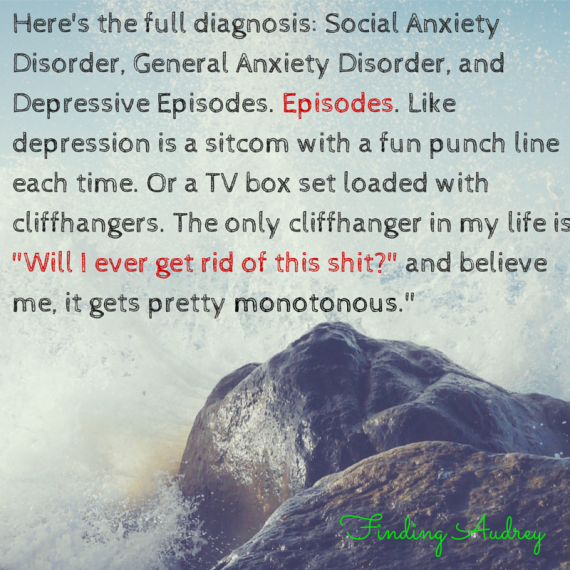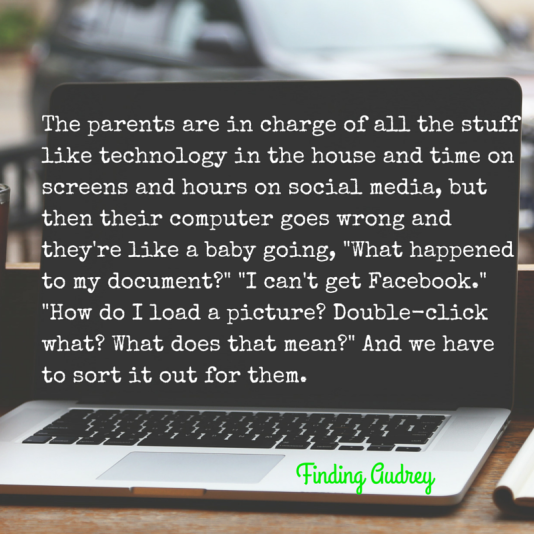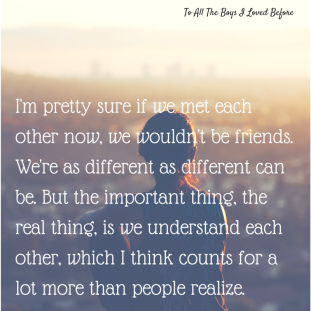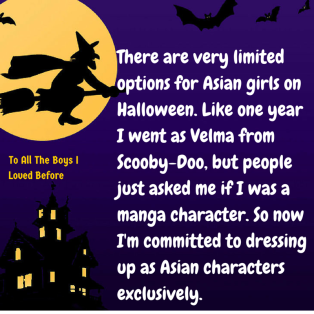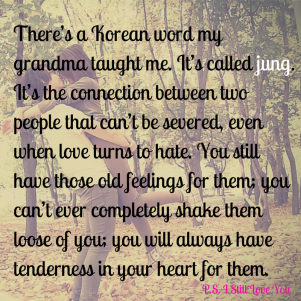If you are new to our book club, this is a low-commitment deal where we present a theme each month on our blog, then use social media to connect to other YA readers by posting Instagram book reviews and conducting a Twitter chat using #YearofYA. This is a group of librarians (school and public), educators at all grade levels, parents of teens, and even teens themselves. Join us once, if the theme appeals to you, or monthly, if you enjoy chatting about YA lit. Can’t make the date of a Twitter chat? Post to our blog, write reviews on social media and tag with #YearofYA, or read the transcript on the blog, to stay connected. If you have a suggestion for a theme, want to post a guest blog, or share other ideas, please let us know! We are happy to be moderators, but love to hear other voices (and I’m sure other people would like to hear you too!). We give you a full month to read, and we do our Twitter chats during the first week of the next month.
SummerofYA
August Reads: Books 4 Boys #SummerofYA
When I came up with this theme, the idea was to be intentionally thinking, “could this be marketed to a male reader?” Not, “these are ‘boy books,'” because I certainly didn’t like being told, as a girl, “those are boy toys/movies/shirts” etc. I was a huge ‘tomboy’ as a kid: played Little League baseball and ice hockey, had more ninja turtles than barbies, and idolized superstars like Michael Jordan and Charles Barkley. Had someone told me, “you need to read more girl books,” I would have flipped out! With all that as background, you can see I don’t like categorizing things male/female (and not because I’m being Politically Correct).
In my elementary library, it’s fairly easy to have books that appeal to all readers – fantasy, animal stories, humor… tend to have something for everyone. But as a YA reader in my free time, I’ve noticed there tends to be a split. Realistic Fiction often has themes of relationships and first loves, Sci Fi tracks towards male protagonists, but Fantasy seems to be a middle ground. I see how The Hunger Games, Divergent, and The Maze Runner series have a mix of readers, despite the gender of the protagonists. You teachers and librarians who work with this age group probably have even more insight, but I really wanted to put forth a conscientious effort to find a few titles that I could recommend the next time a friend asks what to buy for a teenage boy (happens to me often, considering I would with kids aged 5 – 11…)
 The first book that popped on my radar was one I read in high school and remember leaving a lasting impression. I listened to A Separate Peace by John Knowles on audiobook, and for some reason, it irked me. Not the book itself, but the ‘pretend youthfulness’ portrayed by the reader. Besides that, I loved the story as much as I did 12 years ago, and think its ‘coming-of-age’ theme can transcend the WWII era into modern times. Two friends, Gene and Phineas, have different personalities, they’re dealing with the realization that the world is bigger than their little school, and there are many factors that destroy their sense of innocence. It would be a great read for the boy who is interested in WWII, but has perhaps not seen it through the eyes of a young American, naive to the future awaiting him.
The first book that popped on my radar was one I read in high school and remember leaving a lasting impression. I listened to A Separate Peace by John Knowles on audiobook, and for some reason, it irked me. Not the book itself, but the ‘pretend youthfulness’ portrayed by the reader. Besides that, I loved the story as much as I did 12 years ago, and think its ‘coming-of-age’ theme can transcend the WWII era into modern times. Two friends, Gene and Phineas, have different personalities, they’re dealing with the realization that the world is bigger than their little school, and there are many factors that destroy their sense of innocence. It would be a great read for the boy who is interested in WWII, but has perhaps not seen it through the eyes of a young American, naive to the future awaiting him.
“Everyone has a moment in history which belongs particularly to him. It is the moment when his emotions achieve their most powerful sway over him, and afterward when you say to this person “the world today” or “life” or “reality” he will assume that you mean this moment, even if it is fifty years past. The world, through his unleashed emotions, imprinted itself upon him, and he carries the stamp of that passing moment forever.”
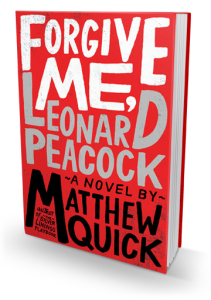 The second pick was my venture into Matthew Quick’s YA writing. I’ve read several of his adult books (most recently, Love May Fail, which I really loved), and had the chance to see him in person this summer in Manteo on his publicity tour. Lucky me, I’m friends with the teacher who won a gift basket of many of his books, and I plucked up Forgive Me, Leonard Peacock. Leonard is a vulnerable, emotionally unstable senior in high school who has been dealt a rough hand in life. Q provides a raw, painful perspective of a suicidal teenager, yet at the same time, gives a scary picture of what many teens expect adulthood to be like. There were a few passages that struck me as frighteningly true – especially as a teacher. For example, his assistant principal catches him in the courtyard during the school day. Leonard invites him to sit and enjoy the moment, but the A.P. mockingly counts to 3, to motivate an 18 year old to reenter the school building. Leonard says,
The second pick was my venture into Matthew Quick’s YA writing. I’ve read several of his adult books (most recently, Love May Fail, which I really loved), and had the chance to see him in person this summer in Manteo on his publicity tour. Lucky me, I’m friends with the teacher who won a gift basket of many of his books, and I plucked up Forgive Me, Leonard Peacock. Leonard is a vulnerable, emotionally unstable senior in high school who has been dealt a rough hand in life. Q provides a raw, painful perspective of a suicidal teenager, yet at the same time, gives a scary picture of what many teens expect adulthood to be like. There were a few passages that struck me as frighteningly true – especially as a teacher. For example, his assistant principal catches him in the courtyard during the school day. Leonard invites him to sit and enjoy the moment, but the A.P. mockingly counts to 3, to motivate an 18 year old to reenter the school building. Leonard says,
I was really trying to make a connection. I would’ve talk to him openly and honestly – no double talk at all – if he would’ve just sat down, taken a few minutes to be human. What’s so important that he couldn’t take five minutes to look up at the sky with me?
Kids reach out so often in sincere ways, but adults are quick to shut them down, refuse to validate their freedoms, and be insensitive to the complexity of their emotions. Leonard, like so many kids (regardless of age), is intelligent, and suffering, and needs guidance. But too often, we get wrapped up in the routine of our days to hear them out.
The next two are longer passages, and worth letting Q’s writing/Leonard’s thoughts do the talking:
I know this will sound wrong, but whenever I wear my funeral suit, go to the train, and pretend I have a job in the city, it always makes me think about the Nazi trains that took the World War II Jews to the death camps. What Herr Silverman taught us about. I know that’s a horrible and maybe even offensive comparison, but waiting there on the platform, among the suits, I feel like I’m just waiting to go to some horrible place where everything good ends and then misery ensues forever and ever and ever – which reminds me of the awful stories we learned in Holocaust class, whether it’s offensive or not. I mean we won World War II, right? And yet all of these adults – the sons and daughters and grandchildren about World War II heroes – get on metaphorical death trains anyway, even though we beat the Nazi fascist a long time ago and, therefore, every American is free to do anything at all here in the supposedly great free country. Why don’t they use their freedom and liberty to pursue happiness?
The whole time I pretend I have mental telepathy. And with my mind only I’ll say – or think? – to the target, “Don’t do it. Don’t go to that job you hate. Do something you love today. Ride a roller coaster. Swim in the ocean naked. Go to the airport and get on the next flight to anywhere just for the fun of it. Maybe stop a spinning globe with your finger and then plan a trip to that very spot; even if it’s in the middle of the ocean you can go by boat. Eat some type of ethnic food you’ve never heard of. Stop a stranger and ask her to explain her greatest fears and her secret hopes and aspirations in detail and then tell her you care because she is a human being. Sit down on the sidewalk and make pictures with colorful talk. Close your eyes and try to see the world with your nose – allow smells to be your vision. Catch up on your sleep. Call an old friend you haven’t seen in years. Roll up your pant legs and walk into the sea. See a foreign film. See squirrels. Do anything! Something! Because you start a revolution one decision at a time, with each breath you take. Just don’t go back to that miserable place you go to every day. Show me it’s possible to be an adult and also be happy. Please. This is a free country. You don’t have to keep doing this if you don’t want to. You can do anything you want. Be any one you want. That’s what they tell us in school, but if you keep getting on that train and going to the place you hate I’m going to start thinking the people at school are liars like the Nazis who told the Jews that they were just being relocated to work factories.”
Leonard, like other teenagers, picks up on adults who seem miserable with their current state. They see work as dull and as oppressive as school. Adults are less spontaneous and less likely to seek joy in their day to day lives. So in Leonard’s broken mind, he thinks suicide before he’s an adult is the answer. Until he meets the right teacher.
It wasn’t an easy read, and I wouldn’t put it in the hands of just anyone. But, it’s important. Like Jay Asher’s 13 Reasons Why, the protagonist’s voice will haunt you – which is a good thing. It’s imperative that teens and adults hear what it’s like to be suicidal, to find ways to be empathetic and helpful, and books like this one will open the door to more conversations and deeper understanding.
I have a confession to make: I abandoned my 3rd choice. It doesn’t happen often, but I’ve listened to 2 audiobooks this year that I wish I had not wasted my time on, so I decided not to finish The Scorch Trials. I recently read The Maze Runner for the first time this summer, and actually liked it (I had previously abandoned the audiobook version the year it came out! full circle…). The movie was vastly different, but the movie preview to the sequel motivated me to keep with the series. My problem arose when I just couldn’t catch a flow in this follow-up. I was invested in the characters, am anxious to see the movie, and wanted to know more about the series that even my 5th grade students have read… but it couldn’t keep my attention. I’ve seen Dashner in action at the Y’allfest YA book festival and loved hearing him talk about the series. Maybe it was the violence, maybe it was the slow start (chapter 18 and they were just getting out into the Scorch)… and maybe it was just a bad time for me to try to read YA Fantasy. Who knows! Just know that it’s OK for YOU to abandon a book… it’s OK for students to abandon as well.
Missed the July 2015 Chat?
We discussed “The New Normal” in YA Lit on 8/5 and not only were some interesting titles named to put on your TBR list, but we also tackled some insights on why literature helps teens embrace their uniqueness, navigate self-identity, and teach empathy.
If you want to read through the discussion, please check out the tweets via our storify post here: #SummerofYA July 2015 Chat
Don’t forget to check out the August theme! We will have a Twitter chat in early September to discuss how to promote reading to male students
#SummerofYA August Theme: Books for Boys
- Are book talks, book-related activities, and discussions tailored towards females?
- Are books “for boys” only when the main character is male?
- Do we assume boys typically read action, fantasy, and/or sci-fi?

In August, pick a book that would appeal to males in your class/school/life, and think about how you would pitch it, without pigeonholing it! That means keeping it neutral, but also interesting. Have a “book pitch” ready for our August Twitter chat (date TBD).
#SummerofYA Book Review: Saint Anything by @SarahDessen
 Sydney feels like an invisible girl. Her older brother has always stolen the spotlight; for being charming, and now, for his criminal behavior. She is “seen” by a new friend Layla, who comes with a complex, but loving family. Sydney is used to blending in the background, but the Chapman’s refuse to let that be the case when she’s around them. I loved that the friendships involve a bit of betrayal, because that’s so often true between friends. The conflict in the story is one not many may relate to, and yet, the pain of a broken family and sibling rivalry is so pertinent, and romance isn’t the central theme. All these factors blend together to make Saint Anything a truly great read – for teens and adults.
Sydney feels like an invisible girl. Her older brother has always stolen the spotlight; for being charming, and now, for his criminal behavior. She is “seen” by a new friend Layla, who comes with a complex, but loving family. Sydney is used to blending in the background, but the Chapman’s refuse to let that be the case when she’s around them. I loved that the friendships involve a bit of betrayal, because that’s so often true between friends. The conflict in the story is one not many may relate to, and yet, the pain of a broken family and sibling rivalry is so pertinent, and romance isn’t the central theme. All these factors blend together to make Saint Anything a truly great read – for teens and adults.I would have loved to know how it felt, just once, to have something fall apart and see options instead of endings.– Sarah Dessen, Saint Anything


#SummerofYA Review: Finding Audrey

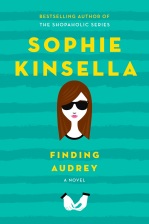 Finding Audrey is an important book in the discussion of “The New Normal.” I knew this book was about mental illness before I started it, but I didn’t realize how honest it would ring true. As a former teen whom once struggled with “episodes of depression,” Audrey’s thoughts are so revealing of what it’s like in the brain of someone battling depression and anxiety.
Finding Audrey is an important book in the discussion of “The New Normal.” I knew this book was about mental illness before I started it, but I didn’t realize how honest it would ring true. As a former teen whom once struggled with “episodes of depression,” Audrey’s thoughts are so revealing of what it’s like in the brain of someone battling depression and anxiety.Currently Reading: Saint Anything

Jenny Han: The YA Minimalist… #SummerofYA Review


Currently Reading: Finding Audrey

#SummerofYA July Theme: The New Normal
We hope everyone had a great time spending June immersed in YA lit all about survival!
If you’re new to #SummerofYA, you can find more information on the purpose of the virtual book club, the importance of YA Lit and our modes for discussion and connection over the course of our reading in our post from June.
At the end of the month, we will host a #SummerofYA Twitter chat to discuss our reading of July’s theme. However, we don’t want to wait until the end of the month to start sharing our thoughts about what we’re reading. We’d like to encourage all of you to use both the comment section of this post and Twitter as a means to facilitate discussion throughout July.
Now onto July’s theme!
July’s Theme: THE NEW NORMAL
What does the normal YA reader look like? What does it even mean to be normal in the first place?
Being a young adult brings with it many challenges, among these are figuring out who you are and where you fit into the world. During July, we will be reading books that honor all types of “normal” and reach all types of readers. All of our readers deserve books that they can connect with, which is why we will use this month to celebrate diversity and the “new normal.”
 For July, we will have a spotlight genre; Realistic Fiction. Check out this awesome list of realistic fiction to help you get started with your July book choice.
For July, we will have a spotlight genre; Realistic Fiction. Check out this awesome list of realistic fiction to help you get started with your July book choice.
You may also want to begin your search for realistic fiction that celebrates diversity by checking out authors such as Sharon Draper, Rainbow Rowell, David Levithan, John Green and Matt de la Peña.
#SummerofYA Book Review: I Am Malala
 When I picked Survival as the June theme for #SummerofYA, I knew this book would push me out of my comfort zone. The two others I read were selected based on authors/genres I had been meaning to explore, but I Am Malala has been sitting on my shelf, taunting me to tackle its tough topic. Malala is the teenager from Pakistan that so strongly believes in the right to education, it nearly cost her her life. I’m not a big nonfiction reader, but knew this one was important – I underestimated the impact it would have on me.
When I picked Survival as the June theme for #SummerofYA, I knew this book would push me out of my comfort zone. The two others I read were selected based on authors/genres I had been meaning to explore, but I Am Malala has been sitting on my shelf, taunting me to tackle its tough topic. Malala is the teenager from Pakistan that so strongly believes in the right to education, it nearly cost her her life. I’m not a big nonfiction reader, but knew this one was important – I underestimated the impact it would have on me.
As an educator, there’s no question that I highly value education. After reading the experiences Malala has endured as a girl seeking education, I’ve come to realize how much we take education for granted in Western civilizations. I also must admit how this book made me realize the lack of empathy I have for war torn nations and the deprivation of those children who live in places like Pakistan. I listen to the news and read about whats happening in places like Syria and Nigeria, but never have I thought that I could do anything about it – Malala’s perspective is the opposite. She refers to a poem written by a German during the Nazi regime, and that her father used to carry it in his pocket – it inspired her to stand up for what she believes in, first in Pakistan, and now, around the globe:

“I knew he was right. If people were silent, nothing would change.” -Malala, p. 140
Much of the focus of Malala’s story is the importance of schooling for her, and her peers. When the Taliban invaded, she used her voice so that others would understand why boys AND girls needed to be allowed an education. When the Pakistani army tried to force the Taliban out of their region, school was a refuge for her, even under the threat of bombings. Malala explains throughout the text how the Qur’an calls for knowledge and that no where does it say only boys should be educated – the Taliban misinterpreted that, and yet, Malala kept going to school, despite the dangers, because “our school was a haven from the horrors outside” (137).
“My father used to say the people of Swat and the teachers would continue to educate our children until the last room, the last teacher and the last student was alive. My parents never once suggested I should withdraw from school, ever. Though we loved school, we hadn’t realized how important education was until the Taliban tried to stop us. Going to school, reading and doing our homework wasn’t just a way of passing time, it was our future. The Taliban could take our pens and books, but they couldn’t stop our minds from thinking.” – Malala, p. 146
I realized, about 100 pages into this book, that Malala is not just the girl that was shot by the Taliban – she is a passionate advocate for education, a devout Muslim who wants others to understand her religion, and a Pakistani patriot who has a duty to represent her country fairly. The history you learn about her nation, her religion, and her people is just as important as the event for which most people know her. When I associated this book with the Survival theme, I made the assumption it would be about her traumatic shooting and recovery. Instead, I learned that she had a overcome many other obstacles as a young girl, long before the fateful October day.
Malala was aware of the threat against her, after years of doing interviews, publishing a diary much like the notorious Anne Frank, and seeing the danger other male, adult education advocates faced: and yet, she continued to use her voice. When her father suggested she be less public for awhile, she replied, “How can we do that? You were the one who said if we believe in something greater than our lives, then our voices will only multiply even if we are dead. We can’t disown our campaign!” (224-5). Because she refused to fold to the threats, her voice continued to be heard. When she was shot, millions of people around the world were drawn to her cause.
I believe educators need to read this book. I also believe many teenagers would learn a new perspective from reading this book (there is a Young Readers version available). With that said, I’ll admit it was difficult: the world she describes is SO different from ours; the young, violent history of her country is a lot of information to take in; the way Pakistani people view Americans is challenging; reading about a religion that is so misreported on makes you question what you really know about it… all these factors pushed me hard out of my comfort zone, but the message Malala sends is still loud and clear:

Beyond reading her book, I recommend exploring:
The Malala Fund: A foundation that promotes education around the globe
He Named Me Malala: A documentary coming out this October about her life
Address to the UN Youth Assembly: On her 16th Birthday, less than a year from being attacked
Nobel Prize Acceptance Speech: From December 2014; the youngest nominee and winner
Her Father on TED Talks: The man who celebrated having a daughter, in a culture that celebrates sons
The Daily Show in 2013: Discussing global need for education
The Daily Show in 2015: Hear her remarks on the day of the Charleston Shooting (pt 1) and part 2
In honor of her birthday on July 12, please consider going on Social Media and using #BooksNotBullets

Tips for Tweeting: #SummerofYA Twitter Chat

![]() We are lucky to introduce several of our peers to Twitter chats thanks to #SummerofYA ~ but we don’t want you to be anxious! Below are some tips and advice on how to best participate in our upcoming chat.
We are lucky to introduce several of our peers to Twitter chats thanks to #SummerofYA ~ but we don’t want you to be anxious! Below are some tips and advice on how to best participate in our upcoming chat.
- Mollee and Tavia will be your moderators. Be sure to be following @molleebranden and @tavia_clark on Twitter before we start
- We will ask questions using the format Q/A
- For example, we may ask Q1: Where do you live?
- You would respond with A1: Town, State
- Make sure to use #SummerofYA to “tag” your tweets, retweets, and replies
- This allows us all to be connected and searchable
- Since you may not already be following all the participants, instead of watching your “feed”, be sure to search #SummerofYA and follow/refresh there.
- For more ways to follow the chat, check out the article below
- If someone posts a response to which you want to directly reply, make sure to “tag” them using @personsname so there isn’t any confusion (for example, from Mollee: “@tavia_clark I’ve read that book too! Great choice for this theme”)
- Don’t be too worried about reading every answer by every participant – we will archive the chat. That means, you can visit the blog on July 9 (and beyond) and the entire “script” will be available to read, jot down book ideas from, find new people to follow, etc.
Lastly, we want to encourage more use of the blog! A Twitter Chat is just a single, one-hour discussion but we’d like to keep the YA chat going all summer long! Please be sure to make comments on the blog book reviews, and especially the monthly theme post! That’s where we should ignite the discussion prior to the Twitter chat at the end of the month 🙂
For more advice on participating in a Twitter Chat, check out this Great Twitter Chat 101 Guide by Nicole Miller.


